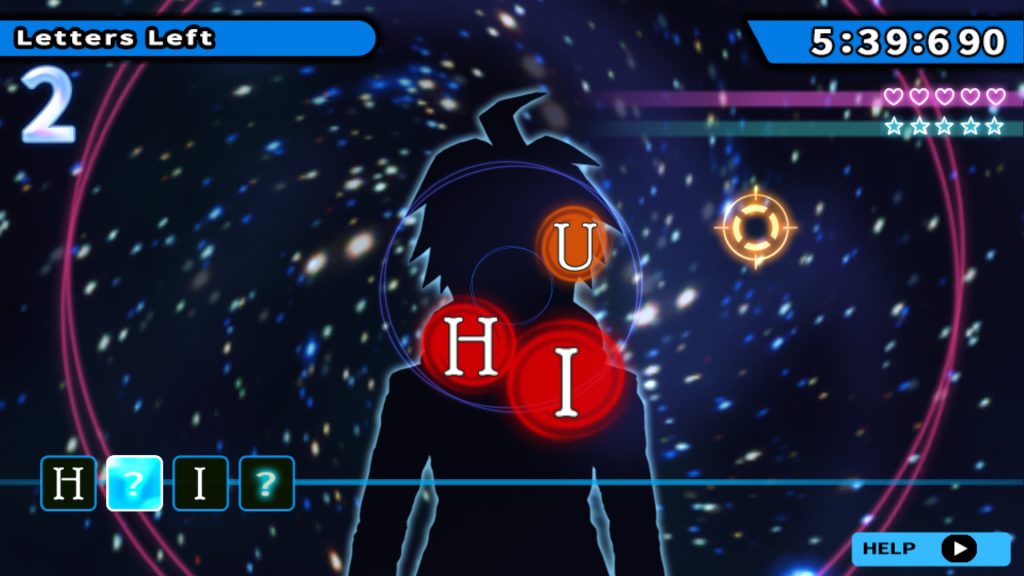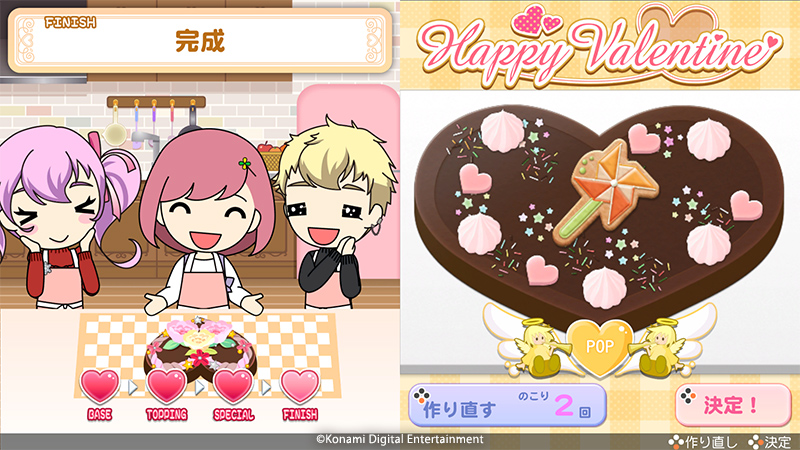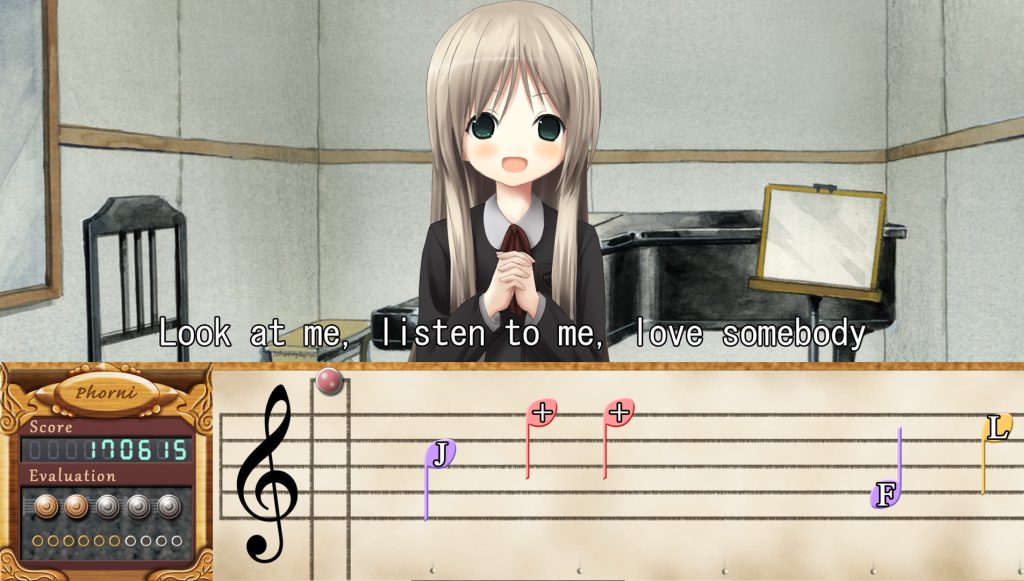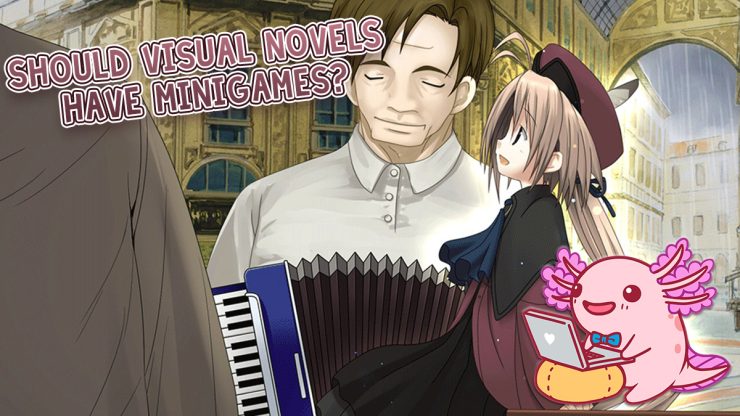There are a lot of debates in the visual novel community, such as: What counts as a visual novel? What’s an otome game? Another common topic of conversation I see is whether visual novels should have minigames or gameplay. Some believe that they’re a good break from all the text-reading, while others think they’re annoying or that visual novels should just purely be reading. Today, I want to explore this topic of conversation and determine whether or not VNs should have minigames by examining both sides of the argument.
Why visual novels should have minigames

If it wasn’t evident by my post last week about visual novels featuring minigames, I don’t mind their inclusion. Many people in this camp, including me, believe that small games in between story sections are a good break from all the text. Even as a developer and visual novel lover, after a few hours, I get tired from all the reading and have to put the game down. But breaking up the story sections with things like minigames is almost like a refresher in a way. I get reinvigorated and want to keep playing.
Why visual novels shouldn’t have minigames

While doing some research for this article, I came across a few Reddit threads on the topic. While a majority of users agreed they did have a place in visual novels, I was more interested in what the opposing side had to say. One user believed that minigames take away time from the story, thus making for a weaker narrative. Another believed that by adding gameplay into the mix, you’re taking away from what makes a visual novel a visual novel.
I can see the argument of the first one. The story of your visual novel is what can make or break a title. I’ve seen too many good games with beautiful art and a great soundtrack be taken down a few pegs because the story doesn’t have that same level of quality. If you take some time away from your narrative, that’s time you’re not using to develop a compelling story. However, to provide a counterpoint to this argument, take a look at Tokimeki Memorial Girl’s Side, a long-running otome game series that features minigames. What makes these minigames so great is that they fit into the story. One of the minigames in the Tokimeki Memorial Girl’s Side series has you dress up your character. While you obviously want to look good, in this minigame you also need to take into consideration what styles the different boys like. You also need to make sure what you wear is season-appropriate and the outfit you wear is different from the last one or else you’ll get penalized. The game series has evolved to now let the user mix and match, making this minigame a lot less strict, mimicking how people dress in real life. This minigame, along with the chocolate-making one, really enhances the story, because it makes you feel like you’re really trying to impress the boy you like.
Let’s take a look at the other point: by adding gameplay, you’re taking away from what makes a visual novel a visual novel. Over the years since the coining of the term, the genre has evolved so much that the definition has now changed. Originally, visual novels stemmed from adventure games like 1983’s The Portopia Serial Murder Case, where players have to interact with the environment and characters in order to find clues and solve item-based puzzles. Then we started getting sound novels like Otogirisou and later Higurashi When They Cry that focused on creating a good atmosphere to help tell its story. Nowadays, we’re seeing visual novels featuring more interactivity outside of story and choices. For example, if you consider it applicable, Ace Attorney has incredibly similar gameplay to Portopia, and Symphonic Rain has a rhythm game. With this in mind, you’ll have to begin to ask yourself if multiple big titles such as Danganronpa no longer qualify as visual novels simply because they feature some level of gameplay.
Seeing conversations over in servers like DevTalk+, a popular server where many visual novel developers reside, people frequently ask questions like “If my game has some gameplay it in like walking, is it still eligible for this visual novel jam I want to enter?” The answer I see is, “If the game is text-heavy with little bits of gameplay, then yes.”
Lastly, another argument is that minigames can be detrimental in terms of accessibility. Players with physical disabilities might not be able to do things like rhythm games, which require users to be precise or risk failing the game and having to start over. If these minigames factor into the game’s story, how is it fair to those players who aren’t able to complete these minigames because of their disabilities? It’s this argument that I feel as though has a lot of weight and is something that developers should consider if they want to add in minigames, because they risk alienating a group of people from their game. The easiest solution to this is to make the minigames skippable. If these minigames are critical to a player’s success, such as in Tokimeki, a good solution would be to make it as though that player perfected the minigame. There’s no reason to punish them for opting out of playing it, and if you do, you again run the risk of angering people. Halloween Otome did this by having the result be randomized if you decide to skip the minigame, and while your performance in them only has a small effect, it’s still annoying to miss out on extra content because you can’t play the minigame.
Conclusion

When it comes to minigames in visual novels, I do believe there is a place for them in the genre. However, there are things to consider when including them such as: Is this something players can easily play? Should I make them skippable? What purpose do they serve to the overall product? Depending on the answers to these questions, I believe developers can decide whether or not minigames are worth having in their game.







